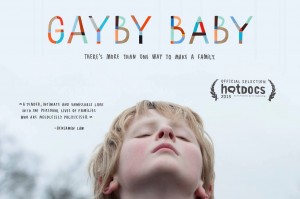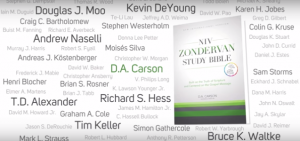Gayby Baby, a new Bible, Aylan Kurdi, the bad influence of evangelicals + more
The furore over Gayby Baby is still doing the rounds in the local media. This piece, by Rev. Michael Jensen, says, “you can’t force people to agree with you, whatever the cause – not the least because you can never know whether a coerced assent is genuine. This principle holds in society in general, and in schools in particular … These days, we all know that the best way to educate a young person is to allow space for discussion, dissent, exploration of contrary views, and respect for whatever decision a person comes to in the end. Compulsory thought doesn’t produce real change. Or at least, not the type of change you want.” Do you agree?
 Over at the Ethics Centre, Justine Toh offers this about the Gayby Baby saga: “Here’s how it could have gone (and could go still). Hold a special assembly where the documentary is screened. Celebrate the achievements of Maya Newell, the Burwood alumna who made the film, and simultaneously bring students’ attention to a current issue of contemporary import for everyone. Then, in the interests of public discussion, follow up the viewing with a friendly and spirited discussion of the topics raised. Invite different voices, each with their own stake in this debate, to speak and share their views. This would require students not be forced to attend the screening or strongly encouraged to dress up as part of ‘Wear it Purple’ day, a campaign expressing solidarity with LGBTI young people. After all, the struggles of sexual minorities remind us that it’s important to celebrate difference in all its forms. We’re so wise, these days, to the perils of peer pressure – so surely we wouldn’t compel students to belong by, say, obliging everyone to wear purple?”
Over at the Ethics Centre, Justine Toh offers this about the Gayby Baby saga: “Here’s how it could have gone (and could go still). Hold a special assembly where the documentary is screened. Celebrate the achievements of Maya Newell, the Burwood alumna who made the film, and simultaneously bring students’ attention to a current issue of contemporary import for everyone. Then, in the interests of public discussion, follow up the viewing with a friendly and spirited discussion of the topics raised. Invite different voices, each with their own stake in this debate, to speak and share their views. This would require students not be forced to attend the screening or strongly encouraged to dress up as part of ‘Wear it Purple’ day, a campaign expressing solidarity with LGBTI young people. After all, the struggles of sexual minorities remind us that it’s important to celebrate difference in all its forms. We’re so wise, these days, to the perils of peer pressure – so surely we wouldn’t compel students to belong by, say, obliging everyone to wear purple?”
If you haven’t heard the name Aylan Kurdi this week, brace yourself. This little boys body was found washed up on the shore of a Turkish beach, after his family fled the conflict in Syria. Here, Nathan Campbell reflects on children, death, and hope. It’s a must-read.
This op-ed, by Tracey M. Lewis-Giggetts says that in the late 19th and early 20th centuries, “fear of theological liberalism drove many believers to an absolutist approach to faith that shut out any opportunity for conversation about faith in secular arenas. Many American Protestants essentially took their Bibles and went home, deciding that their interpretation of scripture was right and all others were wrong, if not heretical. This collective isolation from other people of faith and those with none made the evangelical church’s efforts to spread the gospel look more like a demand for doctrinal alignment rather than an extension of God’s love and grace and the facilitation of a conversation about the faith.” Is she right?
Yet another study Bible has hit the shelves this week. The NIV Zondervan Study Bible is based on the NIV 2011 translation, and has all new study notes and essays on key biblical themes. Americans (and Australians, for that matter) don’t lack access to the Bible. Most Christians will have at least one in their home. So why do we keep buying new ones? The Washington Post reports that “The proliferation of Bibles underscores the anxieties people have about whether or not they are reading the right Bible. Concerns over accuracy and interpretation are especially true among religious traditions that distrust secular scholarship on the Bible.” Get your hands on one here. 
Do you know who Joy Davidman was? You’ll probably know her best as the wife of C.S. Lewis, but before that romance happened, Joy was a hardcore atheist. Until, that is, she saw the fallout of the atomic bomb dropped on Hiroshima and Nagasaki in August 1945. “Joy suddenly realised that civilization could be instantly obliterated. She was bringing a second child into a world where, she wrote in one poem, ‘ashes that were babies / blew among the bamboo trees.’ Science might not be society’s salvation, as she had long believed; instead, it might be the world’s damnation.” Read her story, here.
Speaking of horrific things humans do, Miroslav Volf has been in Australia speaking about forgiveness in the aftermath of violence, amongst other things. Volf’s father was tortured in a concentration camp, and became a pacifist preacher. Miroslav himself experienced prolonged interrogation in the former Yugoslavia. Here, he talks with Richard Fidler about how you forgive, the need for forgiveness, and how you can live a good life, a life with joy, in the presence and in the aftermath of violence.
Email This Story
Why not send this to a friend?



